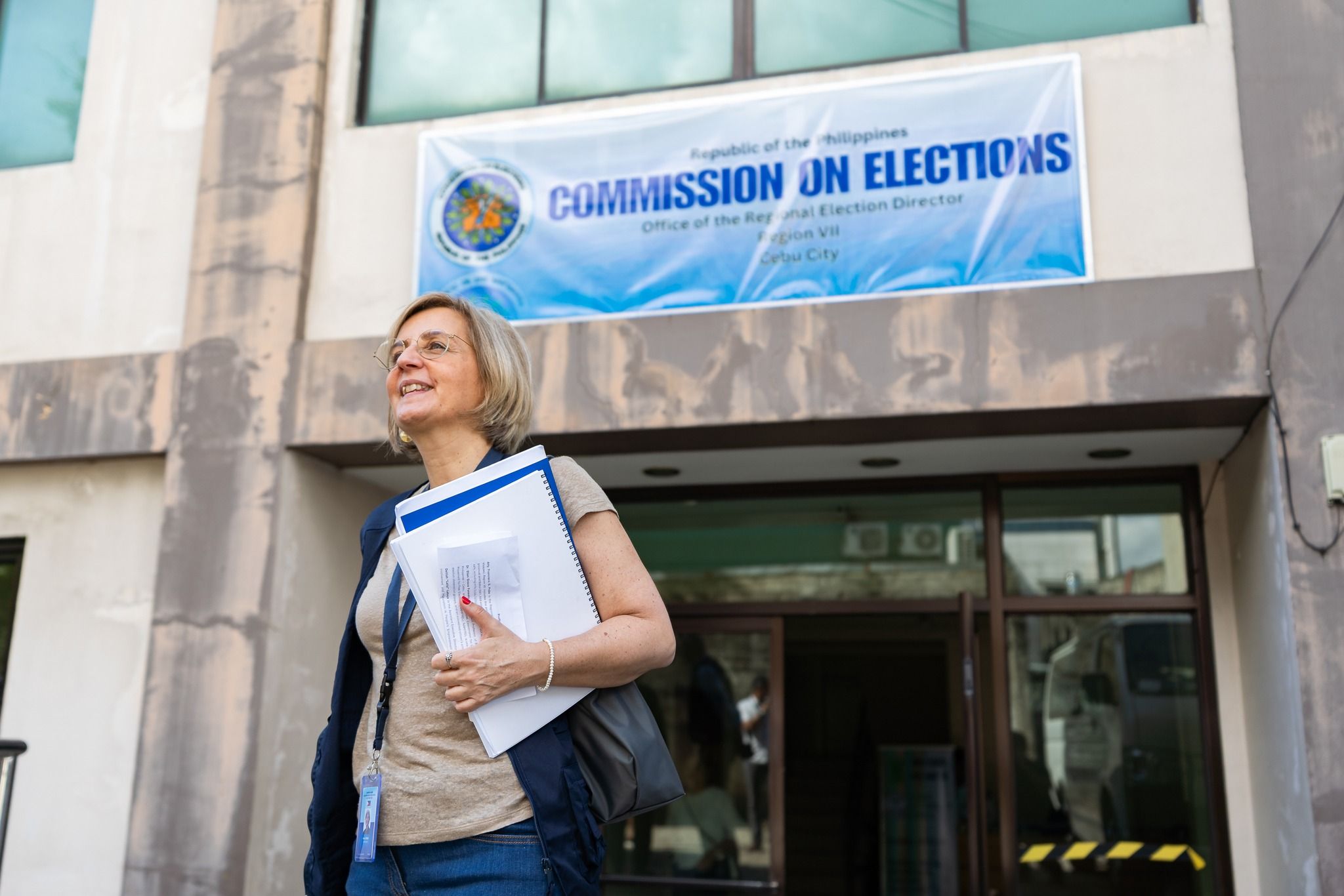Observation, not interference, is the European Union (EU) election observation team's mission in the Philippines with the aim to "improve democracy."

This was stated by Chief Observer of the European Union Election Observation Mission (EU EOM) Marta Temido in a press conference on Friday, April 25, as she stressed that their deployment in Manila to observe the May 12 mid-term elections is a common practice worldwide.
"So, why do we do this? Because enabling both international and national election observation is a hallmark of democratic governance. We observe one another—not to interfere, but to learn," Temido said.
"We do so to share experiences and to improve the quality of our electoral processes," she added.
The chief observer pointed out that their team is here not to "validate or legitimize the results."
She said the team assesses elections against international and national standards for democratic elections, and against the laws of the Philippines and principles of good electoral practice.
"That is the spirit in which the European Union Election Observation Mission has come to the Philippines. We are not here to validate or legitimize the results. What matters to us is the process," Temido said.
"Our role is to observe, to assess, and to support democratic standards, impartiality, and independence—independently and without interfering in the process," Temido added.
Temido explained that the EU applies a long-term and comprehensive election observation methodology which allows them to assess every phase of the electoral process including the legal framework, performance of the election administration, registration of voters and candidates, the campaign—including campaign finance—the role of the media and social media, and the quality of information available to voters to make an informed choice.
The team will observe the election day itself— from polling, automatic counting, and the tabulation of results.
They operate through a core team of 12 experts based in Manila, and 72 long-term observers deployed in 36 teams of two, covering all regions of the country since April 16.
However, in about 10 days, they will be joined by an additional 104 short-term observers deployed in 52 teams around the country.
Temido elaborated that two months after the polls, they will come back to the Philippines to present their final report which will include a comprehensive document on the final assessment of the elections, recommendations offered for the consideration of the authorities, lawmakers, election administration, and the general public.
"The product of our work is an assessment and it's up to the countries to use it or not. We share it, we believe it and we believe that this improves, really improves democracy," Temido said.
"This is our legacy, this is the legacy of this election observation missions. So we think, as election observers, that is important because this allows countries to improve and to develop learning from each other and sharing from each other," she also said.
Foreign interference
Foreign interference in the May polls, if there are, will also be part of the monitoring of the EU election observation team, Deputy Chief Observer Manuel Sánchez de Nogués said.
Nogués also stressed that foreign interference in elections could exist not only in the Philippines but also in other countries.
"As the chief of sovereign mentioned earlier, there is a dedicated social media monitoring unit and of course those kinds of issues will be closely monitored if they exist of course," he said during the press briefing.
"And of course it is true that from over the years there will be more and more foreign interference in elections not only here but, not only in the area but, also in the European Parliament elections of course in 2024 and in other countries in the world as you know," he added.
Nogués said their monitoring team is made up of several analysts covering particular specific methodologies like farm trolls and foreign interference.
"[A]nd our reports will address those concerns because they are becoming more common concerns nowadays," the deputy chief observer said.
According to Temido, they also monitor the respect for fundamental freedoms that are essential to democratic elections such as the right to vote and to stand as a candidate, freedom of expression and information, freedom of movement and association, equality among contestants, the right to an effective legal remedy, and the right of voters to cast their ballot free from pressure or intimidation.
Why only now?
This is the first time the European Union has deployed an election observation mission to the Philippines. Temido explained that they were invited to observe the May polls, and they honored the invitation.
"But you may ask, why is this the first time? Why now and not before? And the answer is straightforward. The European Union was invited by the Philippine authorities and the Commission on Elections to observe the 2025 national midterm and local elections. In the spirit of partnership and cooperation, the European Union has honored that invitation," the chief observer said.
She further explained that the international election observation is a common practice among democratic nations.
Over the past 25 years, the European Union has deployed missions in 75 countries, she said, adding that elections within EU member states are also observed by international organizations.
"[T]he election observation mission deployment is always dependent on two criteria at least: an invitation from the host country and this was the case for the government of the Republic of the Philippines right now and after that an assessment by the European Union institutions because we need to be sure that criteria are fulfilled namely free access to observation independence," Temido said.
"So those two criteria were fulfilled for this mission and this is why we are here," she added.